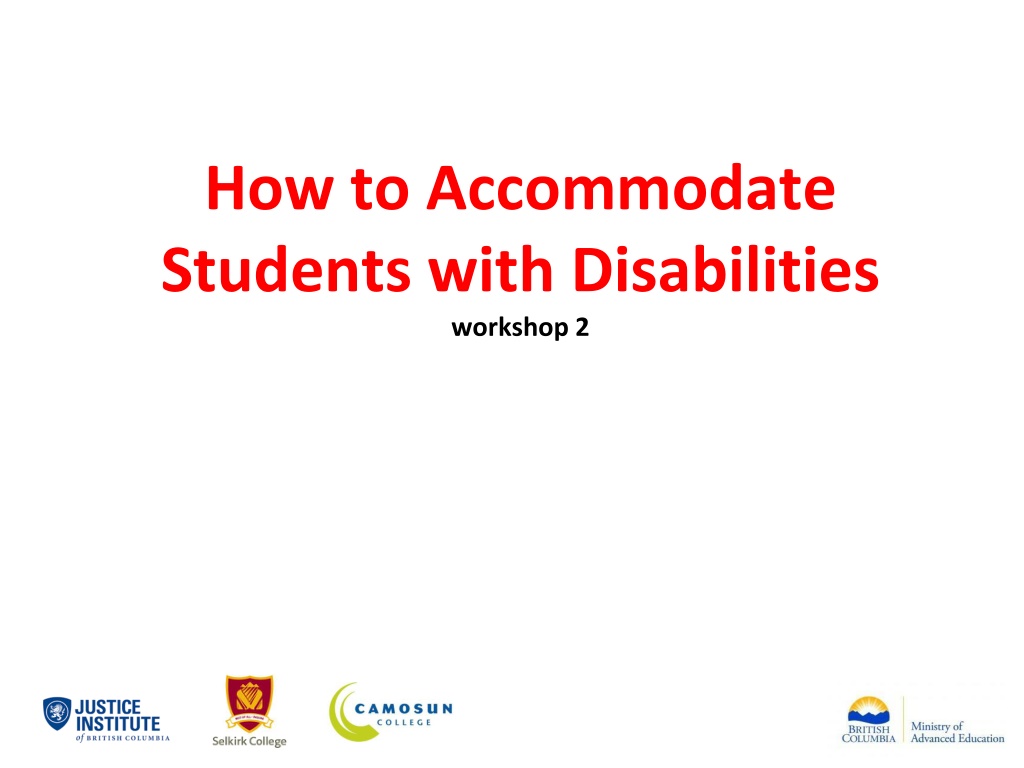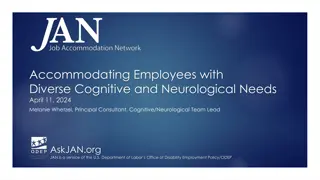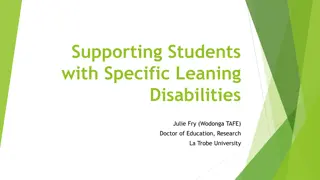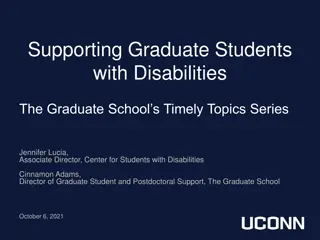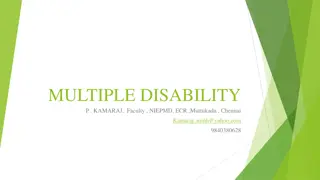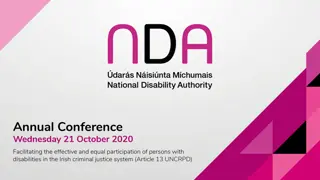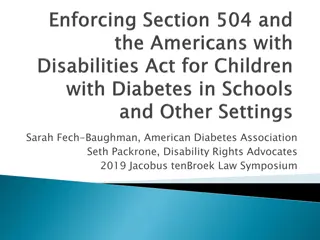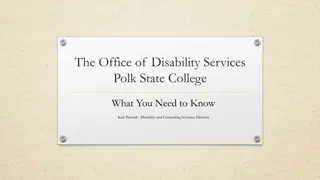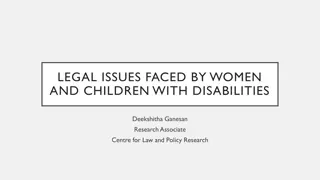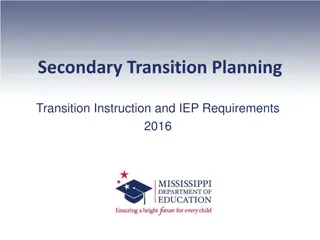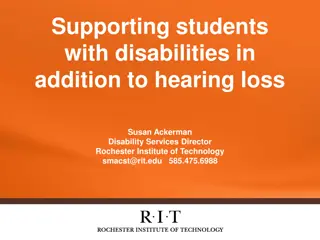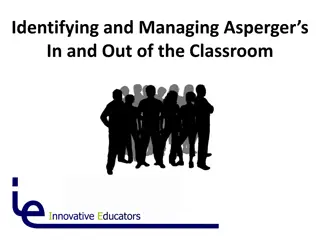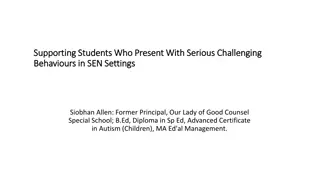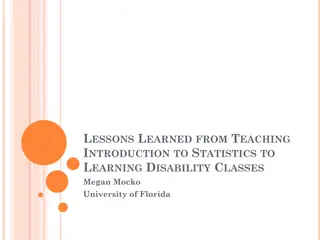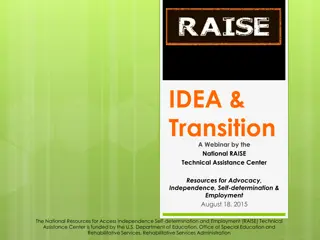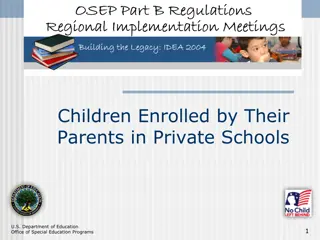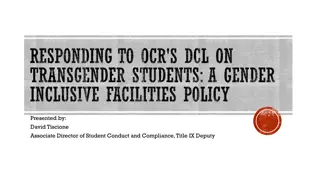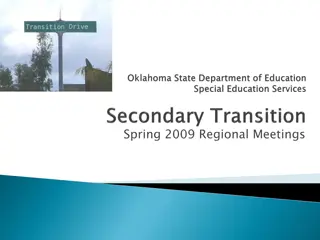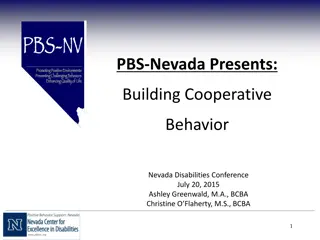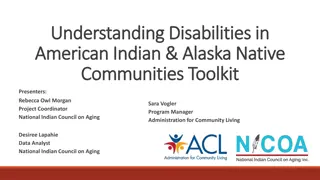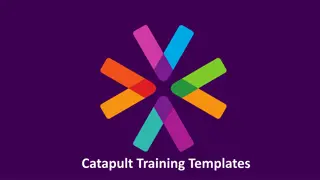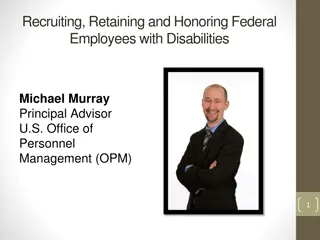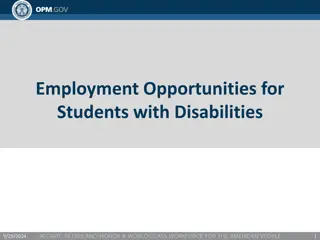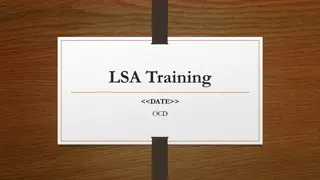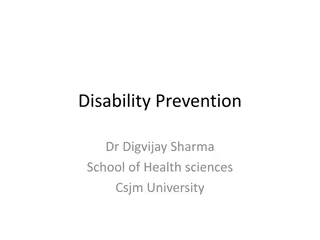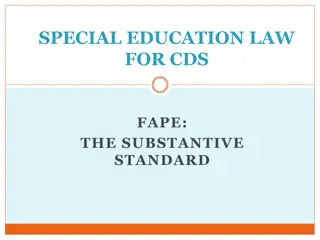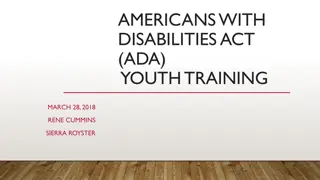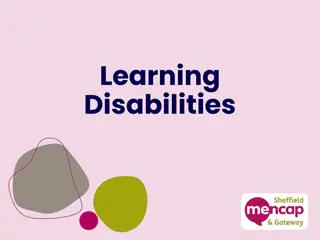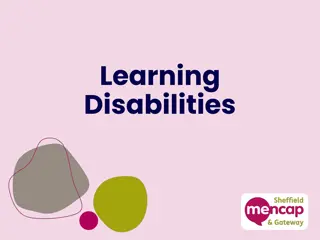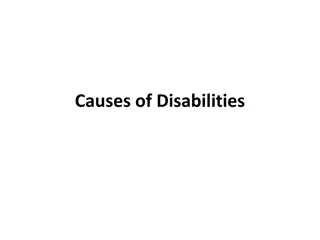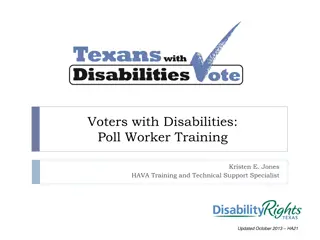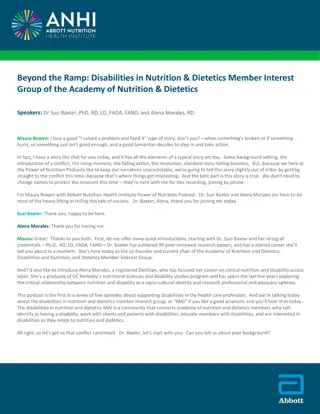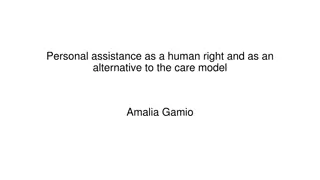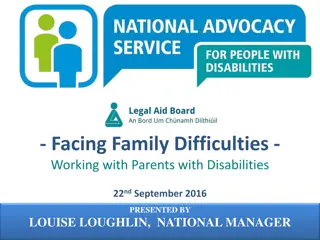Effective Strategies for Accommodating Students with Disabilities in Educational Settings
This workshop provides insights into accommodating students with disabilities in educational settings. It covers key concepts like duty to accommodate, reasonable accommodation, and the collaborative process involved. Learn about available accommodations, the importance of providing a level playing field, and the Duty to Accommodate as outlined in the Human Rights Code of BC. Understand how to make every reasonable effort to accommodate students' disabilities effectively.
Download Presentation

Please find below an Image/Link to download the presentation.
The content on the website is provided AS IS for your information and personal use only. It may not be sold, licensed, or shared on other websites without obtaining consent from the author. Download presentation by click this link. If you encounter any issues during the download, it is possible that the publisher has removed the file from their server.
E N D
Presentation Transcript
How to Accommodate Students with Disabilities workshop 2
Course Outline By the end of this lesson you will be able to: Identify the concepts of duty to accommodate , reasonable accommodation and undue hardship Recognize the difference between accommodation and modification Understand the general process involved for students to access accommodations in PSE Recognize that the accommodation process is collaborative process Learn how to access resources and supports related to accommodating students with disabilities Develop an understanding of specific issues related to confidentiality Discuss how working and learning environments can be designed to maximize accessibility for all students
Accommodating Students With Disabilities Many types of accommodations available Most are straightforward to implement Academic accommodations do not provide an advantage, instead designed to provide a level playing field by removing barriers to access and participation Students with disabilities must meet all essential outcomes of a course or program even with accommodation
Human Rights Code of BC and The Duty to Accommodate Section 8 of the British Columbia Human Rights Code prohibits the denial or discrimination in the provision of services customarily available to the public. This obligation is known as the duty to accommodate .
How Does the Duty to Accommodate Work? In most cases, students have the responsibility to proactively request accommodation for a disability However, the College also has a duty to inquire if a student is struggling or if unusual behaviors are occurring and existence of a disability or medical condition is suspected Once an accommodation is requested, the College has a duty to make every reasonable effort to accommodate the student s disability
Duty to Accommodate is Different in Each Situation A specific accommodation is provided to meet the particular needs of an individual. For this reason, the Disability Coordinator reviews a student s specific situation to establish their eligible accommodations. The College is not required to implement unreasonable requests for accommodation
Undue Hardship The College has a duty to accommodate up to the point of undue hardship This means that provision of accommodation can require some hardship in terms of financial or administrative costs When undue hardship has been reached is different in every case and is dependent on the resources available at a particular institution
Student Responsibility in the Duty to Accommodate Students also have a duty to cooperate with reasonable requests as accommodations are being sought There may be more than one approach possible to meet a student s needs; thus, a student has a duty to accept a reasonable accommodation and can not hold out for a preferred option if a reasonable option has been offered.
What is Reasonable Accommodation? Reasonable accommodation refers to changes in the allocation of institution resources or in teaching or evaluation procedures which are designed to meet the particular needs of a student with a disability. Reasonable Accommodations must: 1. Be based on documented individual needs. 2. Allow most integrated experience possible. 3. Not compromise essential requirements of a course or program. Does not pose a threat to personal or public safety. 4. Not pose a threat to public or personal safety 5. Not impose an undue hardship or administrative burden. 6. Not be of a personal nature.
The Accommodation Process Self Disclosure & Confidentiality
A Closer Look at Confidentiality A student s disability status is highly confidential information and is only shared to the level required to implement their disability accommodations and to remove barriers to access. Students provide documentation of their disability to the Disability Service Coordinator (see topic 3 for facilitator notes) Instructors receive information about the functional impacts of the disability & a student s eligible accommodations; however, the diagnosis and documentation of disability remain confidential (see topic 3 for facilitator notes) Students provide their express consent before any information is shared about their disability Some students may choose to share more information but do not ask for specific details regarding their diagnosis or documentation Any requests for further information should be directed to the Disability Service Coordinator first
Accessing Accommodations & a Student s Transcript Information about academic accommodation does not appear on student transcripts because: Accommodations do not provide an advantage; they level the playing field Accommodation does not compromise essential learning outcomes Students receiving accommodation must meet all essential learning requirements
How to Maintain Confidentiality Ensure that discussions regarding disability accommodations take place in a private setting and are handled with discretion if in public Refrain from discussing the student s disability in front of the class, or in group settings Avoid asking questions about the nature or cause of a student s disability Recognize that a student may not identify if she/he is uncomfortable in discussing their disability Ask a student in what ways you can help them to be successful in your class, or ask if certain approaches would be helpful
Implication of Choosing not to disclose a disability To access accommodations, a student needs to disclose that they have a disability. If a student chooses not to disclose a disability, they will be treated in the same way as any other student
Documentation Requirements Must be provided by an appropriately qualified professional Must include the diagnosis and functional impacts of the disability in an academic environment and their severity Confirm whether the disability is likely to change Can also include suggested accommodations and supports for consideration
Determination of Reasonable Accommodation: A Partnership Student : Instructor : Disability Coordinator Student Responsibilities: Self-disclose disability Provide appropriate documentation to Disability Services Request accommodations in a timely manner Inform Disability Services and/or instructors when disability-related problems arise in a timely manner
Instructor Responsibilities Review accommodation forms from students carefully Bring any concerns regarding recommended accommodations to Disability Coordinator at the start of the term Provide exams and related information to Disability Services staff in a timely manner Talk with Disability Service Coordinator as soon as possible if students with disabilities are struggling to help ensure a proactive approach Assist in implementing accommodations as required
Disability Service Coordinator Responsibilities: Review documentation of disability Determine reasonable accommodations Provide Accommodation form to student & instructors Assist in implementing academic accommodations and supports Provide consultation and support in collaboration with other college staff in implementing accommodations Provide support and guidance in working through disability-related challenges collaboratively with students, faculty, and staff
Importance of Ongoing Communication A proactive Approach is essential for success
Disability Services is here to help! Myriam Spencer, Disability Service Coordinator, Nelson Campuses Ph: 250-354-3205 mspencer@selkirk.ca Trish Foy, Disability Service Coordinator, Castlegar Campus & Extension Centres Ph: 250-365-1380 tfoy@selkirk.ca
Case Study 1 John has been teaching in the welding program for several years. This year one of the students in his class has provided him with a letter from the Disability Services Office outlining that his student, Brendan, will require extra time on exams and a quiet space to write. The letter also notes that Brendan may require more time to learn procedures and may request clarification from the instructor regularly to check his understanding. John is comfortable with the first set of accommodations for exams as he is familiar with this process; however, he is uncertain about the classroom accommodations. Questions that come to mind for him include: Why does Brendan need more time to learn procedures? Will safety be an issue for this student? How can John ensure that he is giving Brendan the help he needs? What can John do to help answer his questions? When should he take action? Who should he talk with?
Case Study 2 Frank has registered for the carpentry program at his local community college. He has some experience in the field already. Over the past few years, Frank has struggled with depression and anxiety. He has recently started taking medication that helps with some of the symptoms but still has days where he struggles to get through his day. His doctor has let him know about Disability supports available at the college such as having more time for exams and letting instructors know that his situation may make it more difficult for him to concentrate in class or occasionally to get to class on some days. However, Frank is concerned about how much information his instructors would know about his medical history and about how he would be perceived if he were to ask for special consideration in any case. As a result he chooses not to access services or accommodations. There are some days in the program where Frank struggles to take down all the important points mentioned by instructors in class and in the workshop. He has also missed a few days of class and has been late on others for mental health reasons but has not provided an explanation to his instructor. What may be the consequences of Frank s choice not to disclose? What can an instructor do if he notices these behaviors and wonders what the causes may be?
Show Video In this video an instructor describes his experience of working with students with hearing impairments. https://www.youtube.com/watch?v=j0u1Cd5WwJg (6:10) Discussion Opportunity to share thoughts and questions regarding our duty to accommodate and provision of reasonable accommodation. What are the challenges? What are the benefits? How does the information shared today fit into your experience of working with students with disabilities?
Thank you very much for your time and feedback Martin Keyserlingk Myriam Spencer
